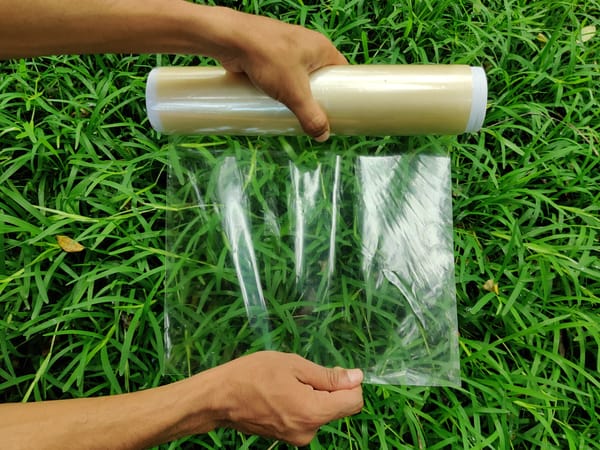The Environmental Impact of the Textile Industry: A Call for Sustainable Production
Clothing and other textiles have huge carbon footprints as a whole. Change needs to come from the source.

Guest post by Alexis Normand, CEO and co-founder of carbon accounting platform Greenly
The textile industry—particularly clothing—has become a significant contributor to global greenhouse gas emissions and waste generation. While fashion might seem like a fringe issue, it poses a significant risk to our planet, unless we shift to more sustainable processes.
When we look at the environmental impact of this industry, the numbers are alarming. According to the Environmental Protection Agency (EPA), in 2018 alone, the United States generated a staggering 17 million tons of clothing and other textiles. This number has increased significantly since 1960, reflecting the growth and consumption patterns of our society.
What does this mean in terms of the magnitude of the carbon footprint associated with apparel production? A UK study from Wrap, a climate action NGO, shows that each ton of clothing generates approximately 26.2 tons of carbon dioxide equivalent (tCO2e). Assuming a similar carbon intensity in the US, the total annual carbon footprint of the country’s clothing and other textile production is a whopping 445 million tons of CO2e. That’s equivalent to a year’s worth of greenhouse gas emissions from over 89 million gasoline-powered cars, according to the EPA.
When this carbon footprint is broken down further, it becomes clear that both apparel processing and fiber production contribute significantly to carbon emissions. Processing accounts for approximately 35% of the total carbon footprint, or approximately 156 million metric tons of CO2e in the U.S., based on Wrap and EPA data. And fiber production contributes about 42% of the total carbon footprint, or about 187 million tons of CO2e.
These figures underscore the urgent need for sustainable production methods and responsible consumption patterns in the textile industry. It is not enough to focus solely on recycling and processing clothing waste; we must address the root causes of these environmental challenges, especially considering only around 15% of textiles get recycled in the U.S., according to the EPA.
It’s Time to Start Improving Textile Sustainability
By promoting changes in consumer behavior and encouraging responsible consumption practices, we can significantly reduce the demand for new clothing production. Embracing concepts such as circular fashion, where garments are designed to be recycled and reused, can contribute to a more sustainable and resource-efficient industry.
In addition, investing in energy-efficient manufacturing methods and using renewable energy sources can significantly reduce the carbon emissions associated with garment production.
Collaboration between governments, businesses, and consumers is essential to drive positive change and implement effective regulatory measures. Regulatory measures should be comprehensive, addressing both production and consumption aspects, while promoting consumer education and awareness.
The environmental impact of the textile industry is a pressing issue that requires immediate attention; by addressing the environmental impact of the textile industry and adopting sustainable practices, we can help mitigate climate change and have a positive impact on our planet.
About the Author:
Alexis Normand is the CEO and co-founder of Greenly, a carbon accounting platform dedicated to helping businesses understand and reduce their carbon footprint. With expertise in climate change and sustainable practices, Alexis is committed to driving positive change in industries with significant environmental impact.
Disclosure: Carbon Neutral Copy's parent company, JournoContent LLC, has clients involved in sustainability-related areas, among others. The owner of Carbon Neutral Copy, Jacob (Jake) Safane, has investments in sustainability-related companies, among others.
As such, conflicts of interest related to these and other investments/business relationships, even if unintended, may exist at times. Please email info@carbonneutralcopy.com if you'd like further clarification on any issues.




